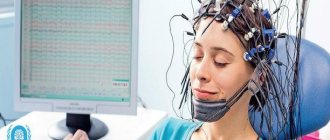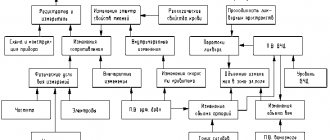Daily stress, poor diet, poor sleep patterns - all these factors negatively affect the body. This rhythm of life often contributes to panic attacks. But, of course, the reasons are not only stress and a busy schedule. Much depends on the biochemistry of a person and his psychological state. Sometimes panic attacks can occur as a result of an illness.
Every person, at least once in his life, has experienced anxiety, panic, and numbness. Such reactions are quite normal in certain situations, such as those involving a threat to life or health. When panic occurs, the body produces stress hormones: adrenaline and norepinephrine. These substances help mobilize all resources for action - for example, running or fighting. If there are no real threats, and the body cannot use this state for its intended purpose, a panic attack occurs. At the same time, the pressure rises sharply, the pulse quickens, and the breath takes away. People suffering from panic attacks experience similar symptoms. Even 20 years ago, doctors considered this to be vegetative manifestations and diagnosed “Vegetative-vascular dystonia” or “Sympathoadrenal crisis.” The patients were not offered any specific treatment, much less a visit to a psychotherapist. Doctors believed that this was a minor somatic illness. In fact, panic attacks can lead to more serious illnesses. For example, a regular increase in blood pressure can provoke ailments such as hypertension, stroke, depression, and neurosis. In some cases, panic attacks can be repeated daily and cause enormous discomfort to the person. It is believed that the widespread occurrence of panic attacks was influenced by an increase in stress factors. But similar symptoms were described back in Ancient Greece. So don’t think that this is some kind of newfangled disease. The problem, rather, is in the correct diagnosis of panic attacks and in the proper prescription of treatment for this disease. It often happens that people suffer for years before they discover the reasons and get help. Sometimes panic attacks go away on their own. Or the symptoms become so minor that they do not affect the quality of life.
What are panic attacks and why do they happen?
A panic attack is a condition in which a person experiences inexplicable, overwhelming fear and severe anxiety. During attacks there is a sharp release of adrenaline and norepinephrine. This is a psychophysical reaction to danger. It is believed that about 10% of the world's population suffers from panic attacks. More than half of them are women. More than 2/3 of people suffering from panic disorder try to cope with the disease on their own. It happens that lack of treatment leads to various mental illnesses. A timely visit to a doctor will help solve this problem.
The attack is accompanied by unpleasant symptoms:
- high blood pressure (up to 220 to 170)
- heavy sweating
- fever or chills
- labored breathing
- lump in the throat
- increased heart rate (more than 120 beats per minute)
- tremors and numbness of the limbs
- nausea
- vomit
- dizziness
- depersonalization
- fear of dying or going crazy
Symptoms usually last from 5-10 minutes to several hours. There are repeated cases of frequent attacks during the day. Sometimes a panic attack can last up to 24 hours. With regular attacks, we can talk about panic disorder. In any case, only a specialist can diagnose the disease. If you find one or more of the above symptoms, this is a reason to consult a doctor.
The occurrence of a panic attack depends on many factors. According to patients, the first signs may appear some time before the attack itself. Early symptoms often include severe fatigue, along with unexplained anxiety, blurred vision, and chest pain. A panic attack can be triggered by stress, whether positive or negative; memories associated with the traumatic event; threat to life and health, state of alcohol and drug withdrawal. Often, panic attacks are directly related to some disease: a violation of somatophoric functions, depression, PTSD, endocrinological and cardiovascular problems, and various phobias. Seizures may occur when taking certain medications. If you are prone to panic attacks, be sure to tell your doctor who prescribes your medications.
People suffering from anxiety syndrome are susceptible to panic attacks. With this disorder, the human body produces abnormal amounts of adrenaline and norepinephrine. Therefore, in case of panic attacks and constant anxiety, experts recommend getting tested for these hormones to determine the cause of such conditions. In some cases, consultation and treatment with a neurologist is sufficient, but most often the symptoms develop further and the person requires more serious therapy.
Another reason for panic attacks is various phobias. For example, in people with a fear of closed spaces, a panic attack begins when they get into an elevator, a closed room where a person cannot control the exit, or public transport. In essence, this state is a psychophysical reaction to danger, in the absence of a real threat. Regular panic attacks greatly affect your quality of life. It is difficult for such people to get to work, to the store, or to the doctor. Restrictions due to panic attacks often lead to depression, depression, and suicidal thoughts.
Very often, the first attack of a panic attack occurs during physical or mental stressful situations. The cause may be heavy sports activity, overwork at work or study, and even a large amount of tea or coffee.
Protracted conflict or being in a stressful situation for a long time also provokes panic attacks. A person creates a state of panic, constantly expecting something bad. From a psychological point of view, these types of attacks arise from the suppression of emotions, the inability to recognize one’s own negative feelings and work with them. In such cases, the likelihood of recurrence of panic attacks increases.
If an episode of a panic attack does not recur for a long time, the person usually forgets about it. In the case of regular panic attacks, there is a fear of new panic attacks. Fear causes the release of adrenaline and a person ends up in a vicious circle. A panic attack begins to control a person’s life.
Another factor influencing panic attacks is genetic predisposition. If any of your relatives suffered from an illness such as panic disorder, then it is likely that the disease was inherited. At the IMC Addiction By Yuzapolsky clinic, we pay special attention to the genetic aspect when diagnosing and treating panic attacks. Sometimes it is enough to detect hormonal causes, eliminate the imbalance of adrenaline and norepinephrine and get rid of panic attacks forever. It has also been scientifically proven that the occurrence of panic attacks is influenced by a lack of serotonin and dopamine, which help a person cope with stress. Such studies are an excellent prevention for hereditary causes of the disease. For example, you can learn about your children's predisposition to panic attacks and correct their condition before the first symptoms appear.
So, in short, the causes of panic attacks are as follows:
- hereditary factors
- childhood and adolescent psychotraumas
- excess adrenaline and norepinephrine
- lack of serotonin and dopamine
- prolonged emotional stress
- severe stress
- physical injuries
- sleep deficit
- regular overwork
- excessive physical activity
- pregnancy
- alcohol or drug abuse
A panic attack can cause a lot of trouble. Don't delay seeing your doctor.
Drug treatment
Without the right course of medication, panic attack therapy will not be effective.
The treatment uses sedative-spectrum drugs, tranquilizers, antipsychotics, nootropics, and antidepressants. The goal of drug therapy is to relieve the symptoms of PA for subsequent psychotherapy. When selecting a drug, the doctor takes into account the individual parameters of the patient’s body, possible adverse reactions, lifestyle, and intolerance to certain substances.
Sedative medications
Sedative-spectrum drugs eliminate excessive fatigue and normalize sleep. They normalize the emotional state and activate the body’s defenses to adapt to stress. Tension and irritability are eliminated, the central nervous system is not depressed.
Some sedatives are prescribed for use during the onset of an attack of PA. They have a mild or pronounced hypnotic effect. Sedatives are of natural origin (for example, valerian, motherwort, eleutherococcus).
Tranquilizers
Tranquilizers are aimed at normalizing the heart rate. They relieve tension, but are only relevant when an attack is approaching. Drugs in this group have an increased risk of developing addiction. Their disadvantages are that reactions are slower and the ability to concentrate is slightly impaired.
The tranquilizer relieves the symptoms of PA in a few minutes, but at the same time reduces the excitability of the nervous system. Relevant only for symptomatic therapy, and not constant use every day.
Neuroleptics
For panic disorder at an advanced stage, mild antipsychotics are sometimes prescribed. They relieve the somatic symptoms of panic disorder - reduce sweating, normalize heartbeat and blood pressure. In the absence of psychotherapy, the drug will not provide a lasting effect.
Nootropic drugs
Nootropic drugs improve blood supply and energy metabolism in the brain. Mental activity is stimulated, memory is normalized. Due to the activation of blood circulation, metabolic processes improve. Lecithin, Mexidol or Pyritinol have a positive effect on the quality of sleep and help cope with vegetative-vascular disorders. Defenses are stimulated to adapt to stress.
Antidepressants
For panic disorder, tricyclic and tetracyclic antidepressants are prescribed. The effect is noticeable after 2-3 weeks of use. At the beginning of treatment, the symptoms of PA sometimes become more pronounced, but over time they fade away. 50-60 days is the period in which the maximum effectiveness of antidepressants is observed. The specific drug is selected strictly individually for a specific patient after a thorough diagnosis.
New generation antidepressants have a low risk of addiction and excellent sedative effect.
How long do panic attacks last?
The duration of panic attacks can vary greatly. We said above that a panic attack can last from several minutes to several hours. It is quite difficult to say what exact reasons influence the time and intensity of the attack. Some patients keep a diary of panic attacks to track why attacks occur. Sometimes such a tool helps to cope with an attack when the first symptoms appear. The fact is that when a person understands what exactly is happening to him, this reduces the intensity of fear, and accordingly the body stops “going crazy” and producing stress hormones in panic attack mode. But, of course, this method is not suitable for everyone.
In any case, if you have regular panic attacks, but have not yet started treatment, there are some tips that will help you cope with a panic attack more easily.
- If a panic attack occurs on the street, then move away from the road and crowds of people
- Carry medications prescribed by your doctor with you and take them in case of a panic attack
- During a panic attack, turn your attention to what is happening around you. Name out loud the objects you see, count passing cars, fingers, etc.
- One of the most unpleasant symptoms during a panic attack is loss of control of breathing. Breathe slowly and deeply. Inhalation, like exhalation, should last at least 4 seconds.
- If you feel that panic is interfering with your breathing, you can breathe into the bag.
- Wear a regular money band on your wrist. When attacking, snap yourself on the wrist with a rubber band. This way, you can concentrate on the physical sensations and take your mind off the panic attack.
Whatever method you use to relieve a panic attack, remember that only a doctor can prescribe the best treatment.
Signs of panic attacks
The term “panic attack” was introduced into medical use in 1980. Currently, it is included in the International Classification of Diseases; the patient is not able to independently cope with periodic attacks. He needs the help of a specialist; perhaps other pathologies will be identified during the examination.
A similar condition was previously considered within the framework of vegetative-vascular dystonia, but now this version is not relevant. The psychological factor is considered primary, and vegetative symptoms are considered secondary. Attacks are classified as neuroses, and the accompanying disorders at the physiological level are classified as autonomic dysfunction.
Panic paroxysms are common, especially common among residents of megacities. They experience frequent stress; the dynamic rhythm of life leaves no chance for relaxation and good sleep. The typical age for the first attack is between 25 and 45 years. In older people, panic paroxysms occur with less severe symptoms; they affect the emotional sphere to a greater extent.
How are panic attacks manifested and treated in men and women?
The main symptoms of attacks described above are characteristic of both sexes. It cannot be said that there are certain types of panic attacks that are characteristic only of men or only of women. Perhaps panic attacks during pregnancy. But these cases should be considered separately, because In women, during the period of bearing a child, the hormonal levels completely change. Therefore, it happens that panic attacks can begin during pregnancy and disappear after childbirth. If we talk about the symptoms and manifestations of attacks, they are similar for both sexes.
If we talk about psychological characteristics, women in general are more emotional. This quality helps to better understand and experience feelings, the suppression of which often leads to panic attacks. On the other hand, hormonal fluctuations in women can cause panic attacks. Panic attacks can also be associated with diseases of the endocrine system, which is more common in females.
The male psyche is structured somewhat differently. Also, do not discard psychological and social attitudes that lead to panic attacks. It’s sad, but the lion’s share of panic attacks among representatives of the stronger sex occurs due to suppressed emotions. Moreover, men tend to ignore the symptoms that arise during attacks for a long time. The main reason for this behavior is the fear of appearing weak. If men do not consult doctors for symptoms of more serious diseases, let alone any panic attacks. Therefore, when it comes to panic attacks, a man believes that he can handle it on his own, no matter how serious the symptoms may seem.
Treatment of panic attacks should be carried out based on the individual characteristics of each patient, regardless of gender. The treatment process for panic attacks must begin with a consultation with a psychiatrist, psychotherapist and neurologist. Doctors must conduct a full examination, clarify all the symptoms and the regularity of panic attacks. The patient also needs to inform doctors about his individual characteristics (allergies, etc.) and the presence of chronic diseases. To accurately diagnose and prescribe effective therapy, the patient must undergo basic blood tests, hormonal profiles and genetic analysis. If necessary, the doctor prescribes additional examinations, such as head and neck vessels and an electrocardiogram.
Standard treatment for panic attacks consists of techniques such as psychotherapy, drug support, physiotherapy, sessions with an osteopath, and xenon therapy.
Psychotherapy for panic attacks includes:
Cognitive behavioral therapy. During the sessions, the patient learns to perceive panic attacks and to react constructively to the appearance of alarming and unpleasant symptoms during attacks.
Psychoanalysis. The patient, with the help of a psychoanalyst, looks for internal traumas that led to panic attacks. It also deals with pent-up feelings that cause panic attacks.
How to treat panic attacks
When you notice the first symptoms of PA, you need to contact a psychiatrist or neurologist. Drug treatment consists of prescribing sedatives and antidepressants that reduce anxiety and calm the nervous system. Such medications have a cumulative effect, the effect begins on the 3-4th day of administration, the result lasts for more than 7 days. Doctors prescribe mainly those medications that are not addictive. Stopping their use does not lead to a sharp deterioration in health.
Psychotherapy is very popular; a course of sessions allows you to get rid of uncontrollable attacks of fear for a long time, in most cases forever. Depending on the condition and form of the disease, the following directions are used:
- cognitive-behavioural;
- body-oriented;
- hypnosis;
- psychoanalysis;
- family therapy.
The cognitive behavioral approach has proven itself in the field of eliminating panic attacks, fears and phobias. Psychotherapists are of the opinion that informing the patient as fully as possible about his condition is the first step towards recovery.
The doctor explains the principle of the occurrence of paroxysms, as well as the reasons why they periodically appear. A set of classes aimed at teaching methods of meditation, visualization, and breathing techniques helps the patient, when he senses an approaching attack, to normalize his condition.
The technique of “breathing into a paper bag” is often used, which the patient should have with him, especially in crowded places. A sharp inhalation and exhalation reduces the supply of oxygen, stopping the attack. A body-oriented approach helps reduce anxiety and relax the nervous system. It is based on various breathing exercises that help achieve complete relaxation. Alternately tensing and relaxing the muscles of the limbs allows you to normalize your emotional state and get rid of fear.
Hypnosis is a popular technique that involves placing the patient in a trance state. He disconnects from the influence of external stimuli, but retains the ability to listen to the therapist’s commands. The patient is instilled with the idea that an attack of PA is not life-threatening; it is important to find ways to overcome the paroxysm. The doctor offers patients various auto-training techniques that act as prevention.
Psychoanalysis is a line of work that will be effective only in individual cases. The process itself takes several months or even years. The doctor’s goal is to find an internal conflict in the unconscious, to determine which psychotrauma became the trigger for the occurrence of attacks.
Family psychotherapy implies the involvement of all family members in the process, regardless of how many people from this microsociety suffer from attacks of uncontrollable fear. During a conversation with a specialist, relatives understand what feelings their loved one is experiencing, what the threat is, what words and actions can be used to support.
Medication support
A psychiatrist is involved in selecting medications for the treatment of panic attacks. A properly selected medication regimen will quickly reduce the frequency, intensity and number of symptoms of panic attacks. Appointments may include:
- Tranquilizers for quick relief of panic attacks. These drugs can cause addiction, so in no case should you increase the dosage on your own and use them daily, just to prevent attacks. These remedies are first aid for a severe panic attack, nothing more.
- Antidepressants for panic attacks. These drugs are used in serious cases where a panic attack occurs due to depression. This indicates a serious stage of the disease, which may require not only treatment for panic attacks, but also treatment for depression in a hospital.
- Beta blockers. The drugs quickly reduce high blood pressure and tachycardia during panic attacks.
- Nootropics. People suffering from panic attacks often complain of problems with memory and thinking in general. These drugs help improve blood circulation and brain performance.










